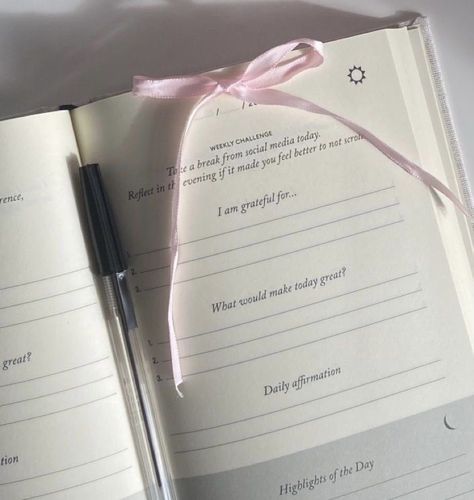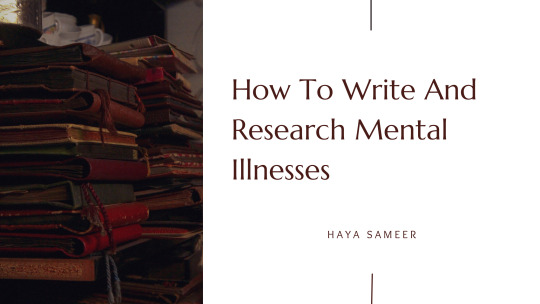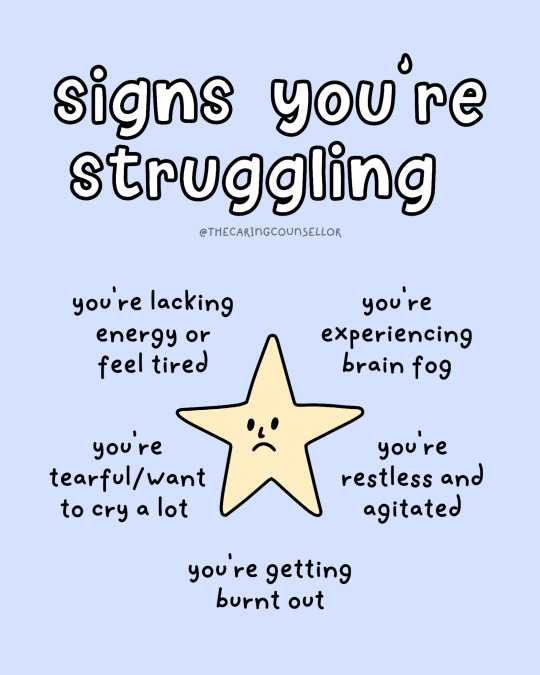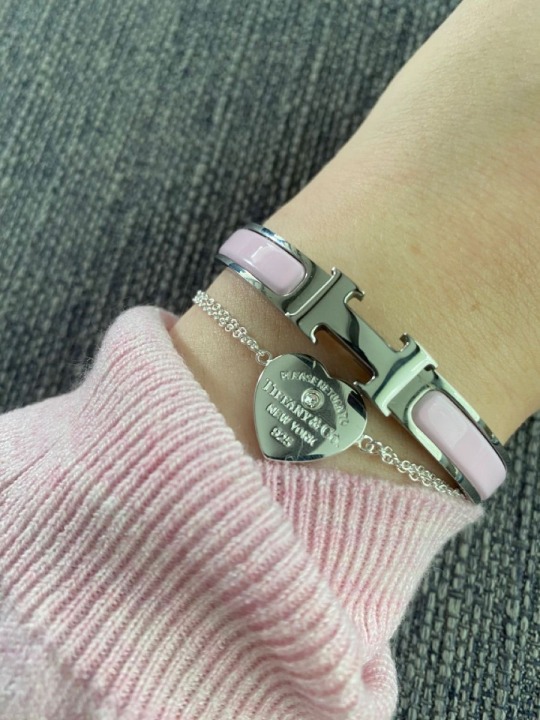#mental help tips
Text
Honestly y’all spice up your mental breakdown with some music and disco lights, im sad but at least I’m keeping my body moving
#mental health#mental help tips#bipolar#bipolar disorder#BPD#borderline personality disorder#this shits a vibe I promise
15 notes
·
View notes
Text
Green Flags in Communication 💚💬
"I want to know when I hurt your feelings."
This shows they are willing to understand and acknowledge the impact of their actions.
"I don't want you to feel alone in this."
This shows empathy and indicates that the person is supportive and does not want the person to deal with issues alone.
"I've been struggling with ___”
This demonstrates vulnerability and trust, as the person is open about their struggles.
"How have you been feeling about ___? I know it's been on your mind a lot."
This shows concern for the other person's issues or worries, showing that they are listening and care about what's important to the other person.
"I feel __ when you __; are you open to trying __ next time?"
This is an example of constructive communication.
"What do you need from me when this happens with your family?"
This shows awareness and sensitivity to the persons family dynamics and a willingness to provide support.
"I appreciate when you ___.”
Expressing appreciation is vital for positive reinforcement and acknowledging the efforts and qualities of the other person.
"I didn't handle that well."
This is a sign of self-awareness and accountability, recognizing one's own mistakes and being open to learning and growth.
"I'm sorry, I was wrong to say that. I'll try to be more mindful in the future."
Shows you are able to apologize genuinely and a commitment to improving behavior.
"Tell me more about that; I'm really interested in hearing your perspective."
Indicates a genuine interest in the other person's thoughts and feelings.
"I noticed you seemed a bit off today. Is everything okay?"
It shows you are attentive to the other person's emotional state and a readiness to provide support.
"I'm here for you, no matter what you need."
Offers unconditional support, creating a sense of security in the relationship.
"I love how passionate you are about your hobbies. It's inspiring to see."
Expresses admiration for the other person's interests.
"Let's work on a solution together. What do you think would be fair?"
Focusing on collaboration rather than conflict.
"I trust your judgment on this."
Trust and respect for the other person's decision-making abilities.
"Your happiness is important to me. Let's make sure you're taking time for yourself."
Prioritizes the other person's happiness and emphasizes the importance of self care.
"It's okay to feel that way. Do you want to talk about it more?"
Validates the other person's feelings.
"I appreciate how you handled that situation. You're really good at ___."
Praises specific strengths or skills, boosting the other person's self-esteem.
"I know we disagree, but I respect your point of view."
Acknowledges differences in opinion while still maintaining respect and understanding.
#communication#personal improvement#personal growth#personal development#self help#self awareness#self reflection#self improvement#healthy relationships#relationship advice#relationships#green flags#emotional intelligence#healthy relationship#health and wellness#mental wellness#mental health#level up journey#glow up tips#glow up#positive mindset#growth mindset
4K notes
·
View notes
Text
HOW TO BEGIN HEALING



ACKNOWLEDGE THE PAIN AND DAMAGE. Others will try frequently to avoid these feelings and the thought that they’re hurt or hurting. However, it is a massive roadblock to starting your journey.
You have to truly confront yourself. Journal, vent to someone, draw or however you feel is best to truly express how you feel, you do.
EXTRACT TRIGGERS. Don’t let your physical environment encourage triggers that resurface your hurt self or continue to hurt you. E.g. friends, social media, family, bad habits etc.
DAILY REFLECTION. You have to start to confront your feelings and experiences, but I know, it’s scary and we don’t want to revisit bad times. Please try to do some self-reflection daily about personal feelings and experiences, as it gets easier when it’s so frequent.
ESTABLISH ORDER & ROUTINES. Start putting in good habits in your life and slowly improve your mental and physical well-being. Healing is going to be all over the place and messy. So when we have a routine to fall back on when needed, it just makes us feel better.
ACTUAL SELF-CARE. Everything showers and face masks are nice and all, but they are not the only aspects of self-care. Self-care is doing the things that are good for you, disregarding how you currently feel. E.g. cooking and eating a healthy breakfast instead of eating takeout.
BE PATIENT AND PERSISTENT. Healing is going to be hard regardless of what hurt you. There will be days when you feel like giving up. However, I encourage you to fight those feelings of hopelessness and continue.
REMOVE SHAME FROM YOUR MIND. Another roadblock, it limits you from all the help and lessons you get in life. It isolates you, from everybody else who does care about you and wants to help. Asking for anything is not embarrassing.
RECONNECT WITH YOURSELF. Start doing hobbies that you love, learning about things you’ve been curious about, and reading books on your favourite topics. Reconnection is so important because it brings emotional and mental prosperity.
#healing#self healing#becoming that girl#green juice girl#clean girl#mental health#positive mindset#positive energy#healing journey#self help#self love#self growth#self care#self compassion#becoming her#glow up era#glow up#dream girl#dream girl journey#dream girl tips
2K notes
·
View notes
Text
☀️
a tiny reminder...
...for you to just hang in there. it'll get better.
you've got this. we've got this ✨
#positively positive#positive affirmations#mental health#daily affirmations#affirmations#self love#self care#love yourself#mental health tips#mental health support#personal reminder#just a reminder#friendly reminder#remind me#reminder#remember#here to help#here to remind you#please remember#hope you can remember#you got this#we got this#we can do this#you can do this#hang in there#keep going#dont give up#motivational#motivate#get motivated
405 notes
·
View notes
Text
even more things that help me survive being alive part 3! (pt. 1/2)
eat directly out of the cooking pot or after putting food directly into tupperware after cooking so you don't have to wash more dishes. and if you have leftovers you can just put the tupperware in the fridge
putting several plastic bags at the bottom of your trash can/waste bin so you can just take out a new one when the trash gets full. this helps me a lot in my bedroom and bathroom where the plastic bag hoard™ is too far away
keeping one of those transparent cold drink takeaway cups from a cafe and using that to drink my homemade coffee out of, just to make it feel like I've been somewhere
having a daily calendar that allows me to visually block out time for different tasks as my time-estimation is awful, and I think showering will take two hours
keeping a magnetic whiteboard on my fridge door that I write new grocery food items on so I know what I have to eat. no more rotting food bc you forgot it existed
a stock of passable quality readymade frozen meals, or frozen dumplings etc for when you want to eat but there are too many steps for even basic cooking
a personal one that I just kinda like - having a daily diary but not for complete sentences or fancy writing just very drily outlining what I did during the day. this creates smash hits such as "went to the store today. cried. watched encanto. cried again"
having a list of everything I could feasibly do on a day/hour off. includes all my hobbies, exercises or outdoor activities, language learning, friends (yes a list of your friends to remind u they exist), stuff I haven't had time for, to-read/to-watch lists. otherwise I forget what's out there!
#adhd#adhd tips#mental health#self care#life tips#t#darkmacademia#wow this one has been sitting in my drafts since like two years ago#sorry guys it turns out the brain problems these tips were meant to help made posting this impossible
2K notes
·
View notes
Text
i am begging u to be kind to yourself!! it'll make ur life better!!! i promise!!!
#suggestion blogs#suggestions#self love#self care#self help#kind#kindness#positivity#positive vibes#mentally ill#mental health tips
1K notes
·
View notes
Text

Take care of your body and mind, art friends. ♥
Need help with the basics? Check out Mind. Body. Artist.
It's a blogcast site @astrafauna & I started about taking care while making art.
It's on hiatus right now but there's tons of useful stuff in the archive.
Content breakdown below the cut ✂️

Introduction to MBA
List of topics we have done and hope to do
Meet the hosts:
Sarah Dahlinger
Sarah Forde
Mental Health
🔵Dealing with Crowdfunding Stress
🔵Define Who You Are
🔵Monthly Wrap Up
🔵Is This What You Want to be Doing?
🔵Use “And”
🔵What does a trout have to do with social media trolls.
🔵How to Take Advice to Win
🔵Do What You Need to do to Succeed
🔵Using an Alternating Schedule to Balance Both Art and Fitness (or whatever recharges your battery)
🔵One Success Metric to Win
🔵Art and Grief
🔵There Is No Time Limit for Getting Back Up
🔵Pick your Perfects to Achieve your Real Goals
🔵Can't work? Time to study! (with short exercises)
🔵Creating with ADHD
🔵How to Balance Creative Work and Day to Day Work
🔵Overcoming Self Doubt and Creative Burnout
🔵Getting Back Up After a Failure
Physical Health
🔵How to Roll Out Your Arms for Tendonitis Relief or Prevention
🔵Four Way Wrist Curls
🔵Ice/Hot Baths for Tendonitis Relief
🔵Stretch Your Wrists and Forearms
🔵Stretch Your Hamstrings: My favorite hack for eliminating low back pain.
🔵Tendonitis Flare Up: Fixed in a Few Days
🔵What I Learned from a Year of Never Missing a Workout.
🔵Let’s talk with a Licensed Massage Therapist about pain while making art.
Food Prep
🔵Recipes Intro
🔵Egg Muffins
🔵Lavish Bread Mini Wraps
🔵Five Minute Crock Pot Veggie Chili
🔵How to Make All Your Meals for a Week Without Really Trying
🔵All Week Salad
🔵Chicken with Onions
🔵Slow Cooker Pork Stew
Artist Interviews
🔵Interview with Loish
🔵Interview with Iris Compiet
🔵Interview with Doug Hoppes
🔵Interview with Heather R. Hitchman
🔵Interview with Brynn Metheney
#art help#tendonitis#mental health#food prep#stretching#art tips#artist interview#time management#adhd#creative burnout#artist problems#art burnout
442 notes
·
View notes
Text
if you're gaining weight in recovery and feel bad about it, that's your body trying to keep you alive. I know it's extremely difficult to deal with your body changing, especially because our disorders are so image based, but your body isn't thinking about that. Its sole purpose is to keep you alive, and that's what it's doing for you.
Your body may not be able to trust you right now, and if you feel out of control, that could be why. But don't worry, a day will come where it can begin to rely on you again to give it what it needs.
#thinking about it like this seriously helped me change my mindset at the beginning of my recovery#ed recovery#ed recovery tips#recovery#mental heath support#ana recovery#body posititivity#mia recovery#mental health#friendly reminder#positive affirmations#positive reminders#mental health positivity
511 notes
·
View notes
Text
How To Write And Research Mental Illnesses

Mental illnesses are a large aspect of literature often incorporated into various different genres. However, even with their prevalence, many authors are often unaware of how to write about mental illnesses accurately. If you’re an author writing a character with a mental illness, here are some tips on how to write with mental illnesses.
Don’t ‘Self Diagnose’ Your Characters
When writing about mental illnesses it’s important to consider whether or not your character would realistically have this mental illness given their situation and story. Many authors often ‘self diagnose’ their characters without actually taking the time to research these illnesses and figure out whether their character would develop this illness if they were a real person.
I say ‘self diagnose’ because as authors we generally do diagnose our characters based on our own interpretations and plans for them and their story, without looking to real people with these illnesses.
Just because your character is going through an unproductive slump doesn’t mean they they are depressed. Just because your character is nervous and experiencing stage fright doesn’t mean they have anxiety.
Take the time to look into these mental illnesses and genuinely consider whether or not your character has a mental illness, or if you’re just self diagnosing and wrongly labelling them.
Do Your Research
Whenever I blog about such sensitive topics, I always find myself ultimately mentioning this one point. This is because even with so many resources available to us both online and offline, writers still choose to be blissfully unaware of sensitive topics mentioned in their WIPs or stories.
I sincerely cannot stress how important it is for a writer to do their due diligence and research the topics they write for, especially if it is something as sensitive as mental illnesses.
Once you have established that your character would realistically develop or undergo a mental illness given the situation they are in, it is now time to research what exactly they would go through.
A simple google search can tell you everything you need to know about your character’s mental illness. Or, you could reach out to people you know who suffer from the same illness and ask them questions about it.
Researching your character’s mental illness helps ensure you don’t accidentally misrepresent that illness or create symptoms that are inaccurate and insulting to people who do suffer from that mental illness. It will also provide you with a sense of ease as an author, and allow you to work on your WIP without having to worry about accidentally offending an entire community.
Remember The Three Ss
One of the biggest challenges writers face with writing with mental illnesses is unrealistic representation. Unsure where to start with your research? Here is a simple guide for you to keep in mind.
When writing about mental illnesses, you need to recall the three Ss:
Symptoms
Side effects
Stages
Symptoms
Every illness or disease has its own symptoms, the same applies to mental illnesses. When writing about a character with mental illnesses, you need to take the time to research the symptoms of this illness and how these symptoms can impact your character on a day-to-day and general level.
For example, a character with PTSD would face trouble sleeping and concentrating, would be irritable, angry and face overwhelming guilt or shame. These symptoms can all make it hard for a person to excel at school or the workplace and can lead to delayed deadlines, unfinished work, and a lot of stress and anxious thinking.
A character with PTSD would likely not be able to handle being at the top of their class, unless they completely engross themselves in their studies to the point where they can’t think of anything except that. However, if that were the case then they would find it very hard to handle ‘normal’ situations and wouldn’t be getting a lot of sleep.
Side Effects
A side effect is a temporary and commonly unwanted effect of a drug or medical condition. Unlike a symptom, a side effect can be harmful or beneficial and most go away on their own over time.
They wouldn’t be considered as ‘serious’ as a symptom, however, they can still significantly impact your character, their story, and their dynamics with the characters they interact with.
Following the above example, a character with PTSD would generally suffer from an inability to develop or maintain positive, healthy interpersonal relationships and an inability to trust others. They also often face side effects such as social isolation, chronic feelings of fear, etc.
These are all side effects that would make it hard for a character with PTSD to maintain emotional relationships. You can use this to portray their sudden lack of connection with friends and family, and how they find themselves only associating with people who have either been through or understand their situation.
Stages
A person with cancer, or other such physical illnesses, doesn’t suddenly hit a chronic level overnight. The same logic applies to mental illnesses. Mental illnesses don’t just develop overnight. Your character won’t suddenly wake up one day in chapter ten and have a full-blown panic attack because they developed a panic disorder.
Yes, people can face symptoms or side effects pertaining to a mental illness after facing a traumatic event. However, when writing about such events, it’s very important to do your research and consider whether or not a person would realistically undergo such serious symptoms in such a small timeframe given the circumstances.
Outside of incidents that are a direct result of a traumatic event, it’s important to consider the stages your character would experience as a result of their mental illness.
For example, a person with PTSD goes through five stages, the first being the impact or emergency stage, during which they struggle to process or deal with the situation they have gone through. Then comes the denial or numbing stage.
Following the above example, a numbing stage would be akin to when a character pretends the traumatic event never occurred and throws themselves into their work or school. Then comes a rescue stage, which would be when other characters begin to intervene or when the character comes to terms with the events and starts to better themselves.
Knowing the stages of your character’s mental illness allows you to accurately plan out what happens in your story and create a realistic portrayal of their suffrage. It also helps flesh out your story for your readers and allows you to seamlessly incorporate your character’s illness into the story.
Don’t Define Them By Their Mental Illness
Now that you have a general idea of how to write and research mental illnesses, I would like to end this blog post with a small reminder. People with mental illnesses are human. They have personalities, hobbies, likes, dislikes, and other such traits that often have nothing to do with their mental illness.
When writing with a mental illness, it’s important to take this into account and ensure you don’t constantly define your character by their mental illness, or even worse, reduce them to their mental illness.
I hope this blog on how to write and research mental illnesses will help you in your writing journey. Be sure to comment any tips of your own to help your fellow authors prosper, and follow my blog for new blog updates every Monday and Thursday.
Looking For More Writing Tips And Tricks?
Are you an author looking for writing tips and tricks to better your manuscript? Or do you want to learn about how to get a literary agent, get published and properly market your book? Consider checking out the rest of Haya’s book blog where I post writing and marketing tools for authors every Monday and Thursday.
#writing community#haya's book blog#haya blogs#hayatheauthor#haya sameer#writing tools#creative writing#writing tag#writing tips and tricks#writing tips#writing tip#writing troubles#writing things#writing advice#writing resources#writing research#writing inspo#writing improvement#writing help#writing mental illness#writer community#writer things#writer tips#writer speaks#writer struggles#female writers#writer resources#writer advice#writer inspiration#writer tag
1K notes
·
View notes
Text
If you're experiencing this, please see your local GP/doctor/therapist/trusted family member or friend. You deserve to feel heard 💙

#inspiration#mental health#mental illness#motivation#positive mental attitude#self care#self love#positive#positivity#mental health tips#motivational quote#self help#getting help#you matter#mental health support#mentalwellness#mental health memes#mental health professional
1K notes
·
View notes
Text
For those who self h@rm by cvtting, here’s some tips for taking care of yourself from someone whos being doing it for 10+ years
•It’s okay, don’t think any less of yourself for relapsing. It happens and its okay. No one ever tells you that its okay.
•Invest in a person first aid kit, I’m a first responder so I’ve always been stocked up. You should make sure your kit has the following:
• sterile cleansing wipes (you can never have enough of these)
•Conforming bandages (you’ll need this for bigger cuts to help keep the gauze secure
•Microporous Tape
•Different size wound dressings
•Plasters of all different sizes (fabric ones work best I find)
•Kitchen roll (I know that sounds strange but it helps to stop the bleeding, where as tissue just falls to bits)
•Some wound closure stitches (butterfly stitches)
•Wash your hands properly before you cvt, it will help keep you safe okay
•Whatever your going to cvt with make sure you give it a good clean with a sterile wipe, I got some nasty infections from not doing this when I was young.
•After you have had your ‘session’ (at least that’s what I call mine) make sure that you treat your wound properly:
•Hold the kitchen roll to your wound until it stops bleeding.
•Clean the area with the sterile wipes thoroughly
•If it is small enough for a plaster then out that on there
•If not use the wound dressings, measure up to the wound ensuring that there is a good finger width between the edge of the cut and the end of the dressing
•Use the tape to secure it into place
•Hold one end of the bandage away from the wound before you start wrapping it (so you have something to tie it off with)
•Don’t wrap it too tight or it will be uncomfortable and you’ll want to take it off
•Change the bandage or plaster every day at least once (I know that it’s hard but if you don’t it might cause an infection)
•If you cvt too deep, it happens it’s okay I’ve been there, push firmly against the wound with a tea towel or any fabric you can get. If the blud is pouring out I’m going to need you to hold it against you wound as hard as you can and then a little harder. Call you Emergencey service number (999, 911 etc) they will talk you though what you have to do and get you help.
•Dispose of any blades you use, don’t use them twice it WILL cause an infection that can get into your blood. I bought pencil sharpeners on Amazon for very cheap. One use only okay? You don’t want to get sick over it.
•If you want to help your scars become less visible use Bio Oil I think that it works the best and really helped me with the ones on my arms.
•There are things that can help you with your urges or relapses.
•Some helpful apps that I would recommend are:
•StayAlive (I have had this on my phone for many years now and it has saved my life
It has saved my life on many occasions and if you find that you are in need of die help, you can show it to the emergency services and they will help you okay. We are trained in this.
•Harm less (It gives you motivational things whenever you open it, it’s 100% customisable and it can help you keep track of your relapses)
•Its okay to relapse, I’ve been though it many times, I recently just relapsed acted a 250+ day gap. Its okay and no one says it enough. You haven’t let anyone down, no one is disappointed in you, your okay.
Just some tips I’ve learnt over time, it’s going to be okay
#mental illness#tw depressing stuff#sh#self harmmm#tw selfhate#tw self destructive behavior#tips#safety#medicare#mental trauma#self love#self help#cutt1ng#twst
364 notes
·
View notes
Text
Attachment Styles in Relationships
Attachment styles are the ways people feel and act in relationships, based on their early experiences with parent or guardian. There are four main types:
Secure Attachment:
Healthy: Feeling comfortable with your partner and being able to share your feelings and needs openly. Trusting them and supporting each other without feeling overly worried about the relationship.
Unhealthy: Becoming overly dependent on your partner, feeling anxious or upset if they spend time away, or constantly seeking reassurance and validation.
Anxious Attachment:
Healthy: Expressing your emotions and needs to your partner, and valuing emotional closeness. Feeling secure when your partner reassures you and staying connected during difficult times.
Unhealthy: Constantly worrying about your partner leaving you, feeling jealous and possessive, or becoming too clingy and demanding in the relationship.
Avoidant Attachment:
Healthy: Valuing your independence and personal space while still being supportive and caring toward your partner. Understanding your emotions and expressing them in a balanced way.
Unhealthy: Pushing your partner away emotionally, avoiding discussions about feelings or conflicts, or being emotionally distant and unavailable.
Disorganized Attachment:
Healthy: Recognizing and addressing past traumas, working on building trust and emotional stability.
Unhealthy: Reacting impulsively or unpredictably in relationships due to unresolved traumas, struggling with forming and maintaining deep emotional connections, or experiencing extreme emotional highs and lows.
#healthy relationship#toxic relationship#relationships#relationship advice#personal improvement#personal development#emotional attachment#attachment issues#anxious attachment#avoidant attachment#attachment styles#glow up tips#level up journey#personal growth#self development#self improvement#self help#mental health#self love
2K notes
·
View notes
Note
How do I stop obsessing over the past and move forward?
HOW TO STOP OBSESSING OVER THE PAST



ALLOW YOURSELF TO DWELL. There is a reason why you are stuck in the past, and you’re only going to find out by actually processing what happened. Maybe you have unanswered questions, owe or owed an apology or you miss how things are and wonder how things can go back.
That being said, as soon as you fulfil the missing puzzle in the past, you need to cut off that clinginess.
IDENTIFY THOUGHTS AND FACTS. This is a grounding technique, as soon as you start thinking of the past and how things could’ve gone if maybe this happened; Go through your thoughts and sort them out as wishful or regretful thinking and what happened or is going to happen. This helps to bring us back to the present moment and to be aware of it.
IS IT A PROBLEM? Is your past catching up to you and forcing you into the past, or are you just imagining what might happen? One is an actual problematic circumstance, and the other is just your imagination/mindset.
PUT IT INTO PERSPECTIVE, usually from a third person's POV. If they witnessed what happened, without knowing all the extra details, would they consider it a big deal? This does even apply to a happy past, like would they see that the friends that you grew out to be a big deal, as you can always make new friends?
TURN YOUR PASTS INTO LESSONS. Not all lessons stem from bad events by the way. You have to start seeing your past as a tool, as something that can help you grow and reinvent yourself to be better as ever, not a burden on you that you want to erase.
JOURNAL. Document what happened, either vaguely, or in great detail, then just throw it away as a symbol that it is now in the past and it will no longer have a hold on you.
MEDITATE. Another grounding technique, but there are great guided meditations on YouTube that help with managing things from the past and learning how to look forward to the present.
IDENTIFY TRIGGERS. When you are put in a similar circumstance or around similar people, do you start thinking about the past again? If so, I want you to process and heal from it, then train yourself to dissociate from what happened with that environment.
DISTRACT YOURSELF WITH THE PRESENT. Start doing things that are scary and you are forced to just focus on that one scary thing instead of the past. This is a quick fix though.
#becoming her#becoming that girl#self healing#healing#wellness era#health and wellness#wellbeing#wellness#mentalhealth#positive mental attitude#mental health#self worth#self help#green juice girl#clean girl#that girl#dream girl tips
805 notes
·
View notes
Text
🌿
loving yourself...
...also means being careful.
careful about how you speak to yourself.
careful about how much space you give yourself to just be.
careful about letting yourself breathe.
careful about being true to yourself.
and, careful about protecting your boundaries.
be careful how you treat yourself, everyday. you're precious ✨
#positively positive#positive affirmations#mental health#daily affirmations#affirmations#self love#self care#love yourself#mental health tips#mental health support#take care and stay safe#self help#self awareness#self care reminder#self care tips#care for me#care for yourself#take care of yourselves#you matter#be yourself#do it yourself#you are beautiful#you are amazing#you are precious#you are enough#love your life
158 notes
·
View notes
Text
I do want to talk about sharing art online from the perspective of a hobby freelancer but before that I'll just toss this tidbit I mentioned on my main
Reblogs are not numbers. Reblogs are meant to share and pass on artwork that someone may like. NO ONE is forced to reblog anything BUT it is a core of engagement in a space like tumblr. Engagement is what brings in interest after all and it's one piece of what makes it important for freelance artists here.
When you look at the numbers and the notes, we need to stop viewing them and comparing them with likes (me included) or total in general. It doesn't help.
Artists do self rebloging to both show or remind folks they've done some work as well as to nudge people to reblog their stuff. Tags are nice and comments in them are a nice way to engage too but passing on the work, especially to help someone to get noticed, is a good way to just work the site as intended.
It will always be about luck because we can't guess who wants to engage with what online. You also can't blame yourselves for this. Don't use the internet mentality of "content" (eugh!) and "flopping" and go about it that way. People find stuff I drew years back and find ways to engage with it now. It's really about luck.
There are things that can help but I'll go about it in another post.
One more thing. Don't be shy about "shilling". Advertise your open commissions, your patreons or ko-fis. I promise it has nothing to do with how big of an artist you are. Remember that you're doing that within your own zone so "bothering" followers is hardly the case, it's your house. Make a tag for it if it helps your mind. I say as someone with social anxiety.
#sky rambles#sorry I know this topic has been everywhere but it made me have so much on my mind#I also vibe on Savvy's streams when I can and artists chatting there make a lot of good points and HELPFUL tips!#so I end up thinking about stuff like this a lot#freelancing is hard#it's also not a job that's sustainable where I live#but also because I can't pace my work differently because I will hate it then#and I don't want to hate working what I enjoy doing#and numbers can really add to that because it turns into 'content' mentality#(i swear i am becoming allergic to that word it physically makes me recoil every time)#it's about finding what works for you EVEN IF IT'S BUSINESS#you NEED to pace yourself HOW IT WORKS FOR YOU and not what brings more money#as unfortunate as that may sound#otherwise you will burnout fast and hate every bit of it
61 notes
·
View notes
Text
Things that got me through college.
These are a list of habits and practices I did in college to keep up on work and get good grades.
Notes
Keep two notebooks for each class.
One that you take notes during class and it can be as messy and I typically only use one color pen and highlighter to keep up with even the fastest teachers.
The second notebook you use after each class (or as soon as possible) and this is for your pretty detailed notes. Try and use active recall questions to make sure there is no gaps in your understanding. I also would try and write it in my own words to make it easier to remember.
After each lecture make flash cards (either online or physical) and have these for anytime you have free time you can quiz yourself.
Scheduling
Plan out your day!
Use some kind of calendar and time block every hour of your day. Plan out when you are gonna study, eat, sleep, free time all of it. This will help you make sure that you are making time for yourself.
I typically do this on Sundays for the whole week and it keeps me from getting decision fatigue while keeping you productive.
Study daily
Even if it’s just for 20 mins make sure you are keeping up your knowledge.
Try different study methods on different days. Flash cards for all your classes Monday. Going over your past quizzes Tuesday. Practice questions Wednesday so on so on. This can be personalized to your schedule.
Take care of yourself
Make sure you are eating sleeping and spending time with friends.
Call your family and old friends
Take yourself out for coffee or to the movies
Also make sure you are exercising regularly however you like to.
Do things ahead of time
I literally wrote down all my due dates as the day before to give myself a day of cushion just in case.
Never plan to study right before the test. What if you sleep in late or something comes up? Always study ahead of time.
Get to know your professors
Go to there office hours and ask questions in class.
Professors have hundreds of students that don’t care about their class. I have found typically professors love having students that actually care about their subject.
When I’m taking notes I write down anything confusing to ask at office hours
Get out of your dorm
You are paying thousands of dollars for college you are allowed to exist and study anywhere on campus.
Study in the library or the cafes anywhere you like.
Explore campus find cool places to hangout.
Feel free to add your own!
#self care#self care tips#here to help#mental health matters#productivity challenge#college#academia aesthetic#academic comeback#college hacks#self study#study tips
65 notes
·
View notes